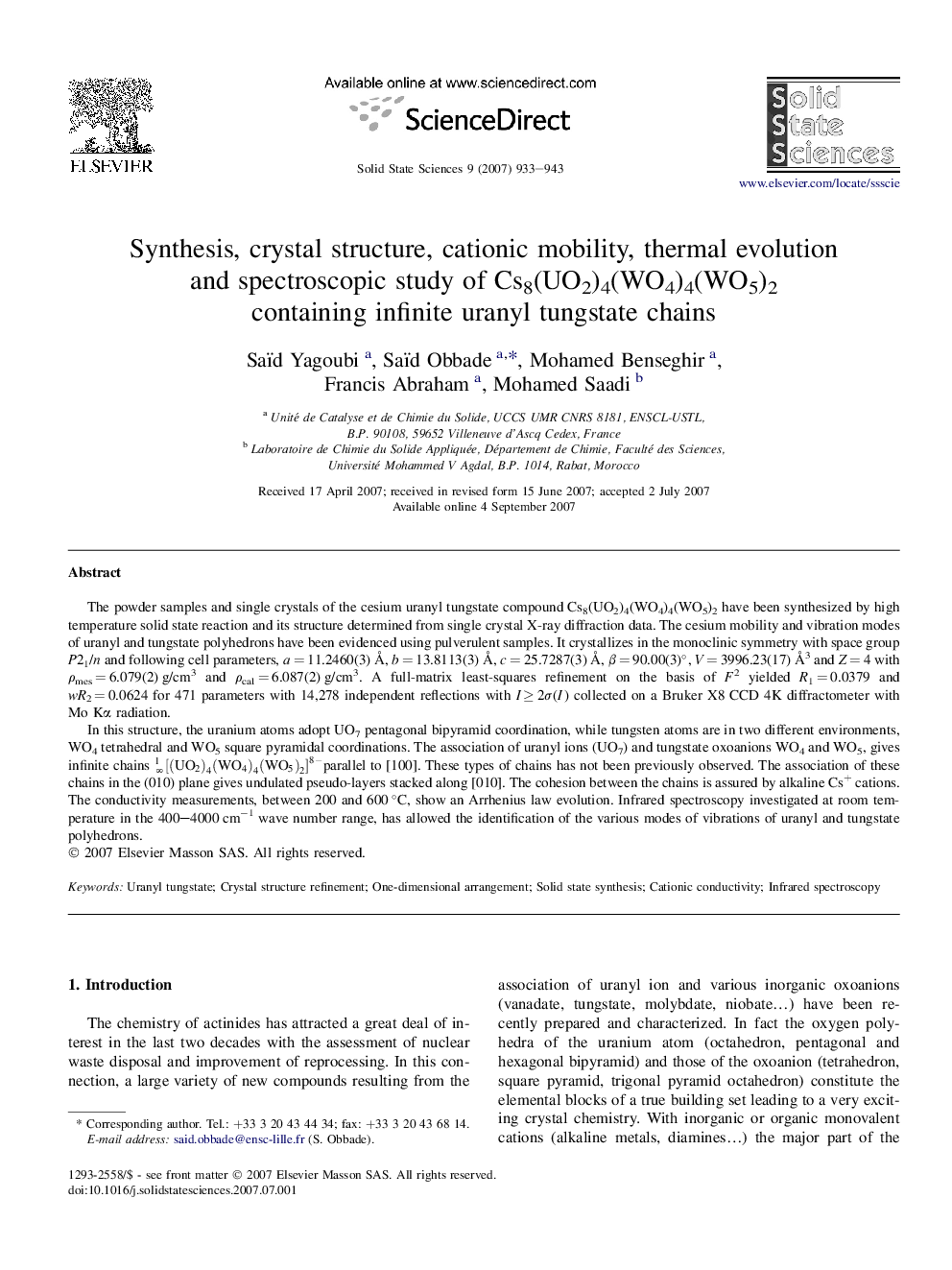| کد مقاله | کد نشریه | سال انتشار | مقاله انگلیسی | نسخه تمام متن |
|---|---|---|---|---|
| 1506515 | 993798 | 2007 | 11 صفحه PDF | دانلود رایگان |

The powder samples and single crystals of the cesium uranyl tungstate compound Cs8(UO2)4(WO4)4(WO5)2 have been synthesized by high temperature solid state reaction and its structure determined from single crystal X-ray diffraction data. The cesium mobility and vibration modes of uranyl and tungstate polyhedrons have been evidenced using pulverulent samples. It crystallizes in the monoclinic symmetry with space group P21/n and following cell parameters, a = 11.2460(3) Å, b = 13.8113(3) Å, c = 25.7287(3) Å, β = 90.00(3)°, V = 3996.23(17) Å3 and Z = 4 with ρmes = 6.079(2) g/cm3 and ρcal = 6.087(2) g/cm3. A full-matrix least-squares refinement on the basis of F2 yielded R1 = 0.0379 and wR2 = 0.0624 for 471 parameters with 14,278 independent reflections with I ≥ 2σ(I) collected on a Bruker X8 CCD 4K diffractometer with Mo Kα radiation.In this structure, the uranium atoms adopt UO7 pentagonal bipyramid coordination, while tungsten atoms are in two different environments, WO4 tetrahedral and WO5 square pyramidal coordinations. The association of uranyl ions (UO7) and tungstate oxoanions WO4 and WO5, gives infinite chains [(UO2)4∞1(WO4)4(WO5)2]8−parallel to [100]. These types of chains has not been previously observed. The association of these chains in the (010) plane gives undulated pseudo-layers stacked along [010]. The cohesion between the chains is assured by alkaline Cs+ cations. The conductivity measurements, between 200 and 600 °C, show an Arrhenius law evolution. Infrared spectroscopy investigated at room temperature in the 400–4000 cm−1 wave number range, has allowed the identification of the various modes of vibrations of uranyl and tungstate polyhedrons.
Figure optionsDownload as PowerPoint slide
Journal: Solid State Sciences - Volume 9, Issue 10, October 2007, Pages 933–943